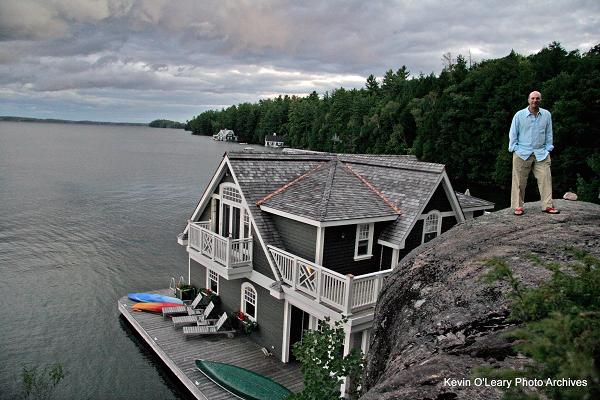
Mortgage interest rates are on the rise, so the cost of borrowing money to buy a home is becoming more expensive for many Americans.
And that can have an effect on how quickly homes appreciate, Kevin O’Leary, an investor on ABC’s “Shark Tank” and a personal finance author tells CNBC Make It. O’Leary owns four homes and has bought and sold a total of nine different properties.
“When rates start going up, and money costs more [to borrow], and mortgage rates are higher every month, the value of real estate goes flat,” O’Leary says. “Or, often goes down.”
For potential home buyers, that means it’s now particularly importantto make the right investment — to make sure you’re purchasing a home that, in the future, will have a resale value higher than what you paid.
To choose a home that will appreciate, you need to follow two simple rules, according to O’Leary.
“If you’ve made the decision to buy a home, here are some things to think about in terms of its resale value in five, six, maybe 10 years,” O’Leary says.
1. Analyze the Location for Access and Convenience
As prices in metropolitan cities increase, it’s likely you’ll be shopping for real estate a bit farther out from the city center, O’Leary says.
“Most of the time you’re going to be looking in the suburbs because nobody can afford to live downtown,” he explains.
Indeed, the cost to live in major cities versus right outside can be striking. In the U.S., homes in urban zip codes have a median value of $315,988, while homes in the suburbs have a median value of $234,443, according to real estate site Zillow.
Here’s how that looks in a place like Denver: The median per-square-foot cost for a home with an urban zip code is $332.12, while the median per-square foot cost for a home with a suburban zip code is $236.63, Zillow’s data show. That means for a 1,000 square foot house, you’re looking at paying $332,120 in the city versus $236,630 a bit farther out.
But when buying in the suburbs, it is crucial to pay attention to what amenities are nearby, says O’Leary.
Ask yourself, “Is it close to good schools?” he advises. “Is it close to a bus or some kind of transit line or subway? That is also very useful. Is it close to a grocery and drug store?
“People that live in homes want to be close to the services they need.”
However, don’t stray too far outside of a city or popular area. “Being just outside of town is not so bad,” he says, “but if it is a 20-minute drive into the country, that is going to be tougher to sell because fewer people are going to want that.”
As a bonus tip: O’Leary suggests thinking of garages as a nice addition, but not a necessity.
“Frankly the way people are looking at cars in the future, they’re going to Uber everywhere, they’re probably not going to own one.” O’Leary says. “Think about that, that’s less important down the road.”
2. Start Small
If you buy a large, extravagant home, you’re limiting the number of future buyers who may be interested when it comes time for you to sell.
Ask while shopping, “Is it small and nimble?” O’Leary says.
“It is great to buy a small footprint house that the next starter couple can use, as opposed to sinking a lot of money into some monster place in the suburbs that nobody can afford later,” he explains.
“No starter couple wants to afford it or wants to pay for the taxes and the maintenance,” he explains.
In fact, large single-family homes (roughly 2,900 to 4,000 square feet) received 12 percent to 45 percent fewer views on Realtor.com than typical homes, CNBC reported in 2017. And those homes sold up to 50 days slower on average. Luxury properties sat on the market in 2017 for a median time of 116 days, up 5.3 percent from 2016, according to Realtor.com.
So stick to only what you need.
“Small houses — 2,500 square feet, two and three bedrooms are great,” O’Leary continues. “You can raise a family in them, they don’t cost a lot to maintain and the taxes are lower.”
Buyers seem to agree. Smaller houses are currently in short supply in the market across the country, which means high demand and higher selling prices.
“Affordable inventory has been more depleted than expected and the upcoming spring home buying season will likely be filled with bidding wars and multiple offers,” Joe Kirchner, senior economist at Realtor.com tells CNBC.
While that’s not great for buyers, it’s exactly what you want when it comes time to sell.
Original Article found at: https://www.cnbc.com/2018/02/21/kevin-oleary-how-to-buy-a-house-that-appreciates.html

